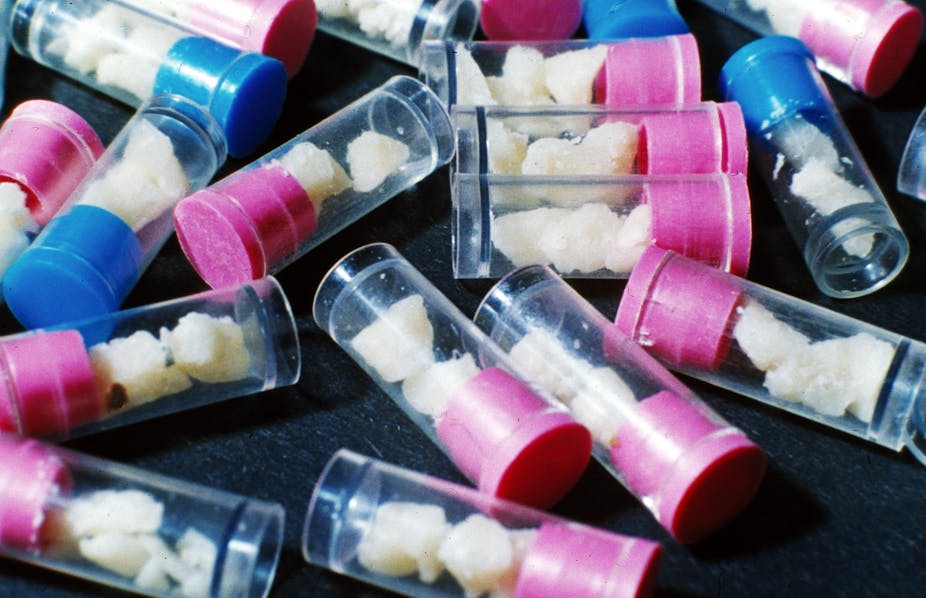Australia must abandon its failed war on drugs and reopen the debate over legalising and regulating their use, according to a report to be released tomorrow.
The report, emotively titled “The prohibition of illicit drugs is killing and criminalising our children and we are letting it happen”, is the work of non-profit body Australia21 and based on a roundtable attended by former premiers and health ministers, and a former police commissioner, among other high-profile figures.
It has the support of new Foreign Minister, Bob Carr, who wrote: “An issue that worried me while I was in NSW politics was the police hitting railway stations with sniffer dogs. It was marijuana that was the focus. I did not think it was the best use of police time. People were breaking no other laws. This was victimless crime and this was seen as a new way to engage police resources. I wanted them to do things like make public transport safe and clean up Cabramatta.”
Founder of Australia21 and report co-author Bob Douglas, a former President of The Public Health Association of Australia, said the war on drugs was “conceptually unsound. The Prohibition didn’t work for alcohol, and [the prohibition on drugs] essentially passes the control and the distribution and the promotion of drugs to criminal gangs. It’s not worked anywhere in the world.
"The drug market will always be able to outbid law enforcement.”
The roundtable was a response to a Global Commission on Drug Policy report last year that declared the 40-year war on drugs launched by US President Richard Nixon a comprehensive failure.
The commission said that between 1998 and 2008, consumption of opiates had increased worldwide by 34.5%, consumption of cocaine by 27% and consumption of cannabis by 8.5%.
The toll of the ongoing crackdown on drugs in Australia was “400 deaths a year - that’s more than a death a day,” Professor Douglas said. “Our prisons are chockablock with people with drug problems, and we’re making criminals of our kids.”
He stressed the Australia21 report did not advocate a solution. “We’re advocating a debate.” Possibilities to be considered in that debate “range from decriminalisation to legalisation and control … what do we do with nicotine and alcohol?
"The evidence does not suggest we’re doing the country a service by criminalising its use and the whole process. The prohibition process has exacerbated rather than helped with the problem.”
In 1997, as part of a team at the Australian National University, Professor Douglas proposed that Australia be the first country to evaluate the use of heroin treatment for addicts in a controlled, medically supervised trial. The Ministerial Council on Drug Strategy endorsed the push. But Australia came under heavy pressure from the US not to go ahead with it, he said.
“That was a landmark moment when [then Prime Minister] John Howard declared a tough-on-drugs policy and said this [proposed trial] was sending the wrong message.”

Michael Wooldridge, who served as a health minister in the Howard Government, said in the report that “the key message is that we have 40 years of experience of a law and order approach to drugs, and it has failed.”
Former NSW Director of Public Prosecutions Nicholas Cowdery said he was “strongly in favour of legalising, regulating, controlling and taxing all drugs. A first step towards such a regime could be decriminalisation, similar to the approach adopted 10 years ago in Portugal or an adaptation of that approach.”
Portugal controversially decriminalised the use and possession of all drugs in 2001. A study published in 2010 in the British Journal of Criminology found that although there had been a slight increase in drug use among adults since the change, there had also been a decline in teen drug use, HIV infections and AIDS cases. Drug seizures by police had increased.
Jake Najman, Director of the Queensland Alcohol and Drug Research and Education Centre at the University of Queensland, said there was now copious evidence that the war on drugs had been, at best, as effective as the protracted, costly and ultimately disastrous war in Vietnam.
Longitudinal records of drug use from the US, England and Australia showed that while levels of illicit drug use have fluctuated, high levels of drug use continue in all three countries, Professor Najman said. Other studies in countries where drug use is a capital crime, such as Thailand and Indonesia, also show that high levels of drug use continue.
“It’s clear that a country cannot punish users in ways that eliminate the drug problem. For example high levels of illicit drug use continue to be observed in Bali, despite the sometimes severe response of authorities there for what would be minor offences here.
"There are now a large number of researchers and experts who are concerned that the consequences of current policies are to make the drug problem worse, and increase the negative effects which are a consequence of illicit drug use.
"About 50% of all people in prison have used illicit drugs before being incarcerated. Many are in prison directly or indirectly because they use drugs. Massive resources are being wasted with existing policies.
"A new approach is desperately needed.”
Ann Roche, Director of the National Centre for Education and Training on Addiction at Flinders University, said that because drug use was complex, “many of the approaches we hope and expect might work, often don’t work. Worse still, there are often unintended consequences of laws designed to prevent problems.
"The main motivation for criminalising drug use is so that it acts as a deterrent. The facts suggest that it doesn’t necessarily do this, or do it to the extent we expect.
"We need to examine the growing evidence base in this area. Let the facts, rather than emotion, beliefs or rhetoric guide our decision making. In that way, we can identify best ways forward for our community and the individuals involved.”

